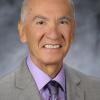As I mentioned earlier, I am on sabbatical from my teaching position in Chicano studies at the University of California, Santa Barbara this fall and, as a result, have not written many blogs as I work on my biography of Fr. Luis Olivares and the sanctuary movement in Los Angeles. However, with all the attention recently on the 50th anniversary of President John F. Kennedy's assassination, I feel compelled to say a few words about President Kennedy's impact on me and on what I was doing the day of the assassination.
I first remember Kennedy at the 1956 Democratic convention that, as a 12-year-old, I watched on television. I was impressed with his youth and hoped he would get the nomination for vice president, which he didn't. I was a junior in high school during the 1960 presidential election for president, when Kennedy beat Richard Nixon.
I remember watching one of the debates while on a football trip to Del Rio, Texas. I played for Cathedral High School in El Paso, and we called ourselves the Irish, even though most of us were Chicanos. President Kennedy's election inspired me, as it did so many of my generation. I was already interested in politics and history, but President Kennedy increased that interest. I was too young to volunteer for the Peace Corps, but as I entered college in 1962, I wanted to eventually go into public service, such as in the diplomatic corps. I thought I wanted to serve in Latin America. I never did so, and my politics went further than Kennedy liberalism as I was affected by the more radical and oppositional politics of the later '60s and, in particular, of the Chicano movement. But I still credit President Kennedy for my youthful and current idealism. He was my political hero, and I followed his administration with great interest.
Needless to say, I, like millions of other Americans, was shocked by President Kennedy's assassination. I had just come home from my morning classes at the local Texas Western College. Returning around noon, my grandmother and aunt already had my lunch ready for me. I always ate in the dining room with the TV on because my grandmother -- Nama -- liked to watch her favorite English-language soap opera, "The Edge of Night." She did not know much English, so I translated for her when needed.
My memory may be a bit fuzzy, and it may be that the soap opera on when I was eating my lunch was "As the World Turns." In any event, shortly after the program commenced on CBS, the news flash came on about the president being shot. I stopped eating my lunch, or maybe I had already finished and moved closer to the TV. Soon, Walter Cronkite came on and gave us more but sketchy information.
And then it came.
We have now seen a replay of Cronkite's announcement that President Kennedy died at 1 p.m. Central time several times in the last week, and I personally will never forget it. As he took off his glasses and momentarily choked up, I'm sure I also choked up and maybe cried a bit, as did my grandmother, who loved President Kennedy. We sat and sat before the TV for the next several days, just taking time to sleep and bathe. My family and I mourned in front of the TV. We were stunned. How could President Kennedy have been shot and killed? I have replayed this day over for many years each November 22, and I tell my students about it. It is a day etched in the memory of my generation. The world seemed changed, but the idealism that President Kennedy inspired in me was never lost. I am indebted to him for that. May he rest in peace.




